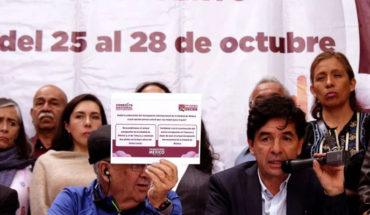After the shocking data on poverty and indigence published by the Argentine Social Debt Observatory (ODSA-UCA), its director, Agustín Salvia, warned that levels could increase in the country during this month if inflation continues to rise and if the economic recession deepens. Structural poverty in Argentina is not new and it is to be expected that it will worsen, as well as that February will be more complicated” than the last few months, Salvia said in statements to the United States. All News (TN). The study published on Saturday by the Social Observatory of the UCA indicated that poverty reached 57.4% of Argentines (about 27 million people) in the last two months, while indigence reached 15% of Argentines (about 7 million people) last January. In this context, the president, Javier Milei, dissociated himself from the responsibility for the poverty data, despite the fact that he carried out an immense devaluation of the currency and accelerated inflation to 20 points per month, and said that this is “the true legacy of the caste model.” The Social Observatory of the UCA projected that the population in a situation of indigence went from 9.6% in the third quarter of 2023 to 14.2% in December 2023 and 15% in January 2024.And the poverty level rose from 44.7% observed in the third quarter of 2023 to 49.5% in December and 57.4% in January. The UCA Observatory measurement highlighted that poverty is at the highest level in the last 22 years, when in 2002 it had reached 54%.” This is due to a “constant process of inflation, the beginning of an economic recession and no major wage adjustments,” Salvia explained. Without going any further, in December wages lost 14% in real terms, according to the latest RIPTE. For Salvia, “the situation is complicated and serious.” However, “it is not a new phenomenon, but a problem that has been accumulating.” He even highlighted that in the last 20 years the statistic that 30% of Argentines are poor has remained firm. That percentage, he said, “will be very difficult” to reduce in the short term, although he estimated that a similar figure could “go down faster” if inflation is in the single digits and “macroeconomic stability, development and productive investments” are achieved.
Original source in Spanish
Poverty and indigence levels “may be more complicated in February,” the UCA warned
February 18, 2024 |





